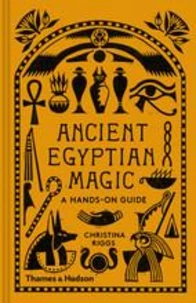Often characterized as a 'lost' civilization that was 'discovered' by adventurers and archaeologists, ancient Egypt has fascinated and inspired many other cultures. Classical Greek and Roman writers admired ancient Egyptian philosophy ; in the eighteenth century, secret societies like the Freemasons still upheld the wisdom of ancient Egypt. But why ? Christina Riggs introduces the history, art and religion of Egypt from its earliest dynasties to its final fall to Rome, and explores the influence ancient Egypt has had through the centuries.
Today, ancient Egypt is ubiquitous in museums, television documentaries and tattoo parlours - wherever people look for a past as ancient and impressive as they come. Looking for a vanished past, Riggs argues, always serves some purpose in the present.
Often characterized as a 'lost' civilization that was 'discovered' by adventurers and archaeologists, ancient Egypt has fascinated and inspired many other cultures. Classical Greek and Roman writers admired ancient Egyptian philosophy ; in the eighteenth century, secret societies like the Freemasons still upheld the wisdom of ancient Egypt. But why ? Christina Riggs introduces the history, art and religion of Egypt from its earliest dynasties to its final fall to Rome, and explores the influence ancient Egypt has had through the centuries.
Today, ancient Egypt is ubiquitous in museums, television documentaries and tattoo parlours - wherever people look for a past as ancient and impressive as they come. Looking for a vanished past, Riggs argues, always serves some purpose in the present.
